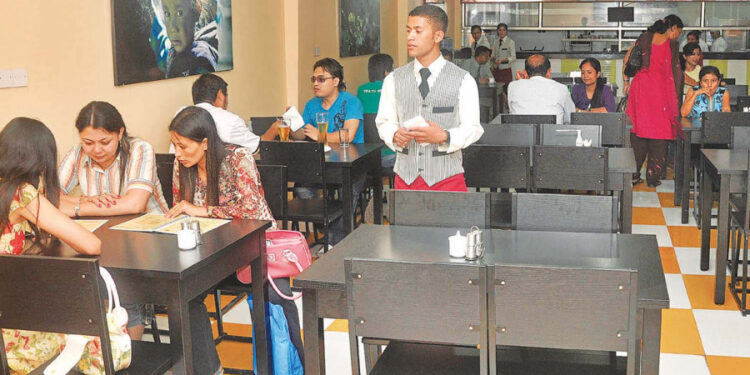-KH News Desk (cbdigital@imaws.org)
Nepal court prohibits extra charges beyond menu prices in a landmark ruling, ensuring consumer protection.
According to the information provided, the Kathmandu District Court in Nepal issued a landmark ruling in response to a consumer case filed by journalist Madan Dhungana on August 21. The ruling, delivered by Justice Basudev Poudel, states that restaurants, hotels, and resorts are not permitted to charge customers more than the price listed on the menu. This means that additional charges such as a 13 percent value-added tax (VAT) and a 10 percent service charge, which have been commonly added to bills, are no longer allowed.
Madan Dhungana filed a case against Green Valley Getaway in Budhanilakantha for adding service charges and VAT to the menu price. The court finds in favor of Dhungana and orders the establishment to pay him Rs10,000 as compensation. Advocate Manish Kumar Shrestha, who handled the case, states that this landmark verdict establishes a legal basis for considering any additional charges beyond the menu price as cheating. He says, “Customers too need to be aware of such issues and file a case instantly if they are charged more than the menu price.” The court’s decision also emphasizes the need for customers to be aware of such issues and to file a case immediately if they are charged more than the menu price.
Furthermore, the ruling suggests that the tax office should notify all its offices nationwide regarding the prohibition of adding extra costs to the menu price. Strict inspections of restaurants and hotels are also recommended to ensure that consumers are not deceived. “The tax office needs to notify all its offices in the country that restaurants and hotels should not add extra costs to the menu price. A strict inspection needs to be done in restaurants and hotels so that consumers do not get cheated,” says Shrestha. The legal consequences for violating this ruling include potential imprisonment for three to six months and fines ranging from Rs200,000 to Rs250,000.
The issue of service charges in hotels and restaurants in Nepal is not new. Since 2007, a mandatory service charge of 10 percent, along with a 13 percent VAT and a 1.3 percent service tax, has been added to food and beverage bills. The service charge was introduced to address conflicts between hotel management and employees, with a percentage of the charge distributed to employees. However, the recent court ruling challenges the legality of such mandatory service charges.
It appears that in June 2018, the Hotel Association Nepal and the Nepal Tourism and Hotel Labourers Association resolved a two-year dispute over the distribution of the service charge collected from consumers. According to the agreement, hotel employees would receive 72 percent of the service charge, while hotel management would receive 23 percent. The Hotel Association Nepal would receive 2 percent, and the three trade unions affiliated with the Nepali Congress, CPN-UML, and CPN (Maoist Centre) would each receive 1 percent.
It’s worth noting that consumer activists had previously filed a case against the service charge, but the outcome of that case remained undecided. Regarding the Indian government’s guidelines on service charges, in 2017, they approved guidelines stating that the charge should be voluntary rather than mandatory. This indicates that in India, customers have the discretion to decide whether or not to pay a service charge in addition to the bill.
According to the provided information, the Restaurant and Bar Association Nepal, represented by its president Araniko Rajbhandari, is expressing dissatisfaction with the court’s verdict. Rajbhandari believes that the decision is unjust for restaurants and argues that if the ruling applies to them, it should be implemented across all sectors where service charges are collected, such as electricity, telecommunications, hotels, and hospitals. Rajbhandari, who owns ND’s Café and Restaurant, emphasizes the need for a clear definition of the service charge.
In January 2019, the Restaurant and Bar Association of Nepal made an announcement stating that the 10 percent service charge added to meal bills would become optional, allowing customers to decide whether or not to pay it. While this change pleased customers, it was met with dissatisfaction from restaurant workers.
Restaurant workers argue that they receive a low basic salary, which is supplemented by the tips collected as a service charge. With the minimum monthly salary for industrial workers set at Rs13,450 by the government, they express the need for an additional Rs8,000 to Rs9,000 earned through the service charge.
The restaurant industry’s concerns highlight the ongoing debate about the distribution and nature of service charges in Nepal.







